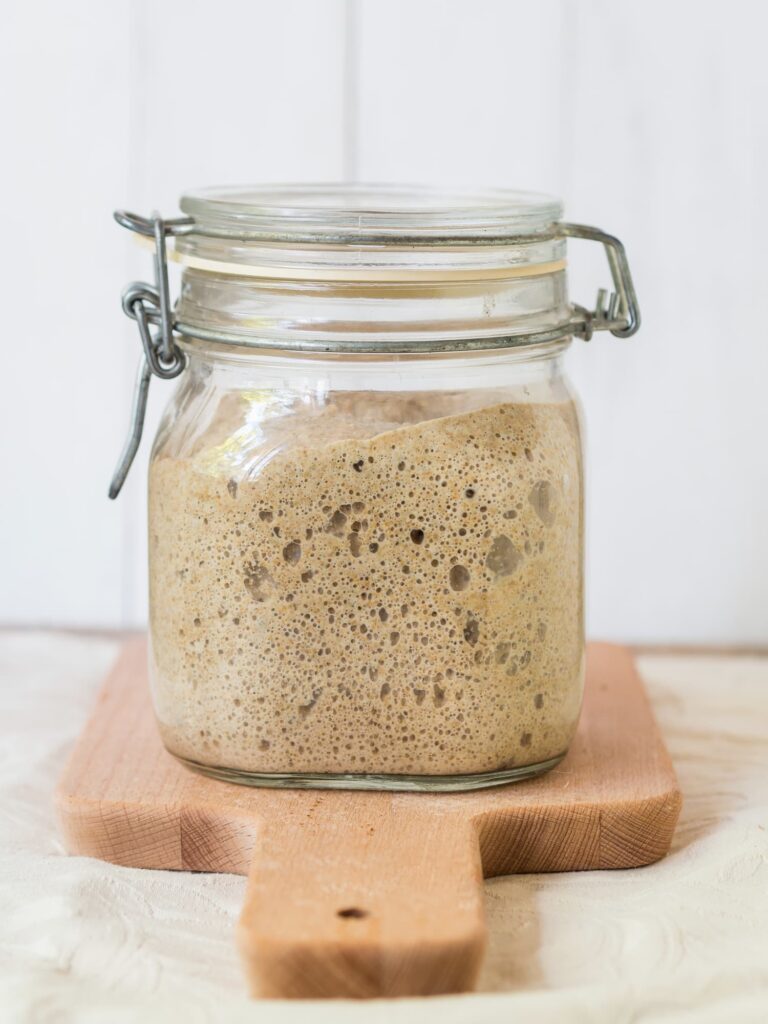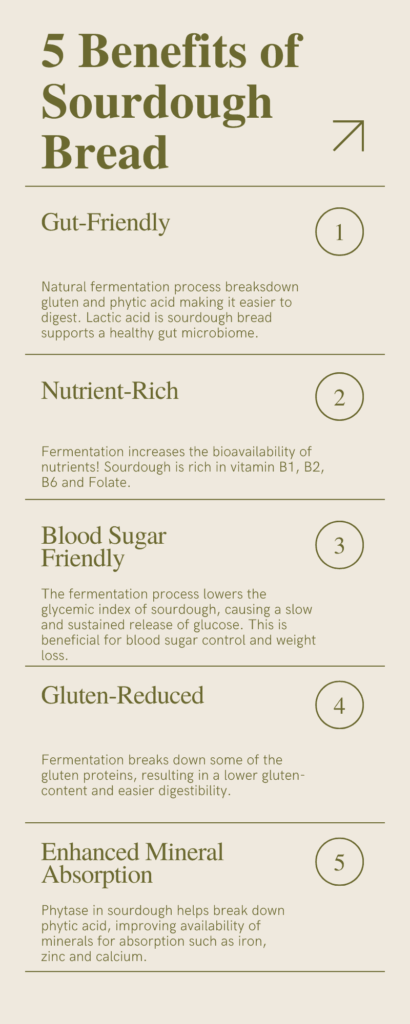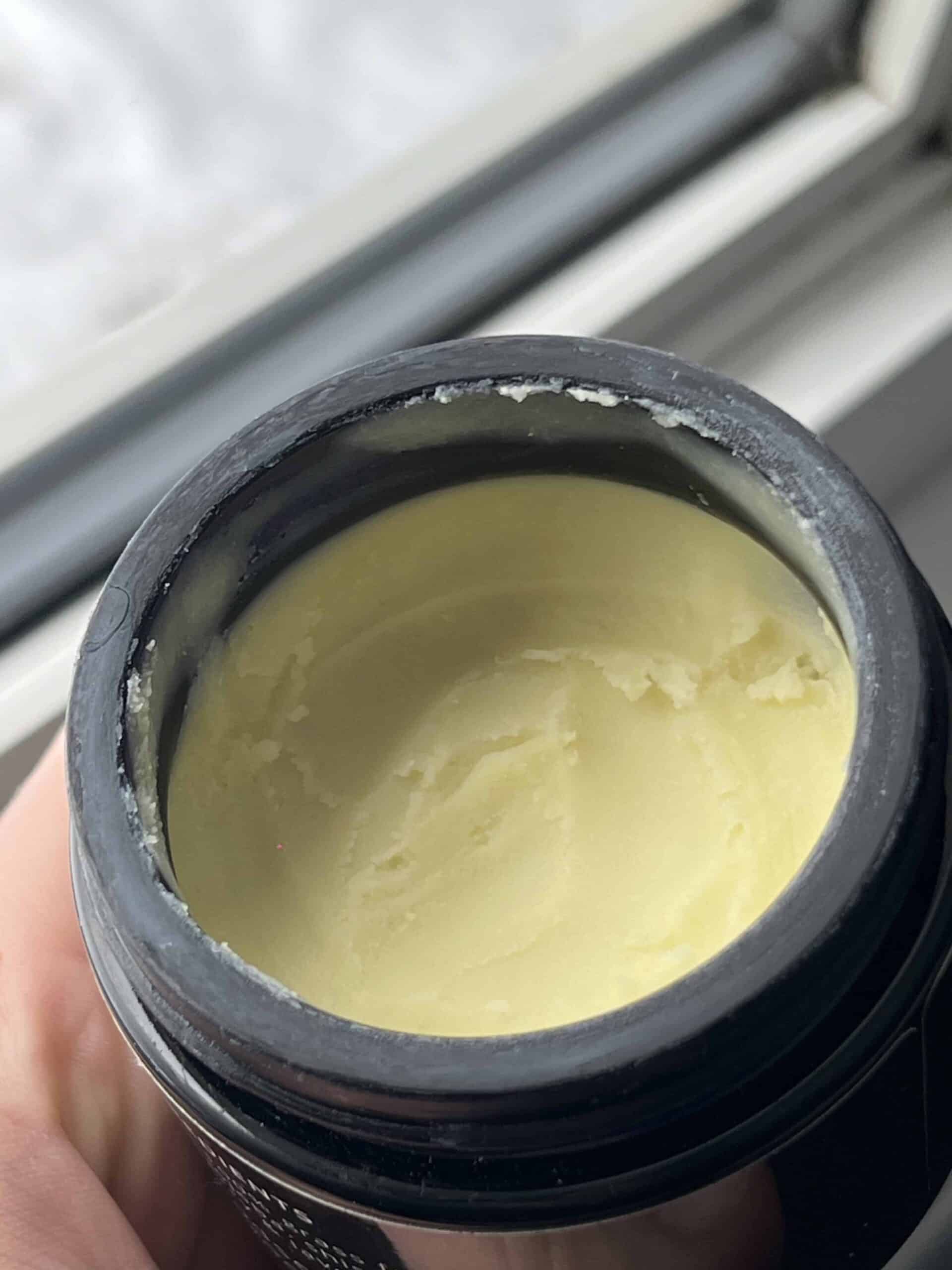Sourdough Bread Benefits: Why Everyone Should Be Eating Sourdough
Who can resist the tempting aroma of freshly baked sourdough bread wafting through the air? Sourdough bread is not only delicious but it also has many benefits that conventional white bread doesn’t.
From easier digestibility to a lower glycemic index, sourdough is a unique and nourishing bread that just about everyone should be eating!
But First, What is Sourdough Bread?
You might have been hearing a lot about sourdough bread in recent years as it’s become popular, but it’s nowhere near “new.”
Unlike regular bread, sourdough is leavened through a natural fermentation process involving wild yeast and lactic acid bacteria.
This process gives it the characteristic tangy flavour and variety of health benefits that have been cherished for centuries.
Related Posts You may Like:
- How To Make Homemade Apple Cider Vinegar From Scraps
- Amazing Health Benefits Of Apple Cider Vinegar And The Best Ways To Take It
- Easy Homemade Apple Chips + 3 Flavours To Try
What’s The Difference Between Sourdough and white bread?
So, what exactly is the difference between sourdough and white bread? First off, white bread that you can find in stores such as Dempsters or Wonderbread – that isn’t even bread. Let’s stop calling it that.
That being said, there are a couple of key differences between regular white bread and sourdough; here is a quick summary:
Ingredients & Fermentation
White bread typically consists of refined wheat flour, water, yeast, sugar, and salt. The leavening process involves commercial yeast, such as instant dry yeast, which ferments the dough relatively quickly.
Sourdough, on the other hand, is leavened through a natural fermentation process using wild yeast and lactic acid bacteria. The ingredients are simple – flour, water, and salt. This natural fermentation gives it that distinct tangy flavour and unique texture of sourdough.

Texture and Crust
White bread often has a soft, fluffy texture with a light crust. The interior is uniform and less chewy compared to sourdough.
Sourdough has a chewier texture, and its crumb structure can vary from large, irregular holes to a denser, more rustic texture. The crust of sourdough tends to be thicker and crustier.
Flavour
White bread has a neutral taste. The flavour is primarily created by added sugars and commercial yeast.
Sourdough’s defining feature is its tangy, slightly sour flavour, which is a result of the lactic acid produced during fermentation.
Digestibility
The quicker fermentation process in white bread may lead to higher gluten content and phytic acid, potentially making it less digestible for some individuals.
Sourdough’s natural fermentation breaks down gluten and phytic acid, making it easier to digest. People with mild gluten sensitivities often find sourdough to be a good choice.
Nutritional Content
White bread is usually pretty nutritionally sparse. The refining process removes the bran and germ from the wheat, eliminating a significant portion of vitamins, minerals, and fiber.
Sourdough retains more of the wheat’s natural nutrients due to the fermentation process. It can be a source of B vitamins, minerals, and other nutrients, providing a more nourishing option compared to most white bread varieties.
Glycemic Index
White bread tends to have a higher glycemic index, leading to a quicker spike in blood sugar levels after consumption.
Sourdough’s fermentation process results in a lower glycemic index, causing a slower and more sustained release of glucose into the bloodstream. This makes it a great choice for those concerned about blood sugar control and diabetics.
Related Posts You may Like:
- How To Make Homemade Apple Cider Vinegar From Scraps
- Amazing Health Benefits Of Apple Cider Vinegar And The Best Ways To Take It
- Easy Homemade Apple Chips + 3 Flavours To Try
5 Sourdough Bread Benefits
1. Gut-Friendly
Sourdough bread stands out as a gut-friendly option, thanks to the natural fermentation process that breaks down gluten and phytic acid. This makes it easier to digest compared to conventional bread, making it a suitable choice for individuals with mild gluten sensitivities.
As a teenager, I noticed that I started experiencing a lot of stomach pain, bloating and nausea after eating bread. At the time, I was eating rye bread and I just couldn’t figure out why I was suddenly having this reaction. I went through so much testing for celiac disease, and nothing came up.
Interestingly, when I visited my family in Europe I could eat all of the bread I wanted and felt great. So, what was the difference?
Well, for one, in European bakeries, sourdough bread is the most common option. But it also boils down to the fact that conventional bread in North America is full of unnecessary ingredients such as sugars, starches, gums, and stabilizers, which can cause inflammation in the body!
Long story short, if you also find that your body doesn’t tolerate bread, try sourdough bread. Because more often than not, it’s not all bread, it’s just the store-bought, conventional white bread that’s the culprit.
Additionally, the lactic acid bacteria present in sourdough contribute to a healthy gut microbiome. A well-balanced gut flora is associated with improved digestion, enhanced nutrient absorption, and even a stronger immune system. So, the next time you savour that slice of sourdough, know that you’re giving your gut a little boost, too!

2. Nutrient-Packed
Sourdough is not just about flavour; it is jam-packed with nutrients, too! The fermentation process increases the bioavailability of nutrients, making them easier for your body to absorb. Key nutrients found in sourdough include B vitamins, such as B1, B2, B6, and folate, which play crucial roles in energy metabolism and overall well-being.
Moreover, sourdough also contains minerals like magnesium, phosphorus, and zinc, which are essential for bone health, immune function, and cellular processes. Choosing sourdough over regular bread can be a simple yet effective way to increase the nutrient intake through your daily bread consumption.
3. Blood Sugar Friendly
For those mindful of their blood sugar levels, sourdough is a better option compared to many commercial bread options. The natural fermentation process lowers the bread’s glycemic index, meaning it has a gentler impact on blood sugar levels.
So, instead of causing a rapid spike in blood sugar levels and then a crash, it releases glucose into the bloodstream at a slower, more sustained rate. This helps with maintaining blood sugar control.
This is especially beneficial for people with diabetes or those looking to manage their weight. The slower digestion and absorption of carbohydrates in sourdough cause a more gradual and sustained release of glucose into the bloodstream, helping to avoid the spikes and crashes associated with high-glycemic foods.
4. Gluten-Reduced
While not entirely gluten-free, sourdough can be a more tolerable choice for individuals with mild gluten sensitivities. The fermentation process breaks down some of the gluten proteins, making them easier to digest.
However, it’s crucial to note that sourdough is not suitable for those with celiac disease, as the gluten reduction is not sufficient to make it safe for consumption by individuals with this autoimmune condition.
For those with milder gluten sensitivities, opting for sourdough may provide a way to enjoy bread without the discomfort often associated with many wheat-based products.
5. Enhanced Mineral Absorption
One of the hidden gems in sourdough is the presence of phytase, an enzyme that breaks down phytic acid. Phytic acid is an anti-nutrient found in grains and legumes that can reduce or stop the absorption of minerals like iron, zinc, and calcium.
The phytase in sourdough assists in neutralizing the phytic acid, unlocking these essential minerals and making them more available for absorption by the body. This is particularly beneficial for individuals with dietary restrictions, such as vegetarians and vegans, who rely on plant-based sources for their mineral intake.

Related Posts You may Like:
- How To Make Homemade Apple Cider Vinegar From Scraps
- Amazing Health Benefits Of Apple Cider Vinegar And The Best Ways To Take It
- Easy Homemade Apple Chips + 3 Flavours To Try
Why is sourdough bread better for you?
Sourdough bread offers several health advantages, making it a better option than conventional “bread.” Here’s why:
- Natural Fermentation Process: Sourdough undergoes a natural fermentation process, allowing wild yeast and lactic acid bacteria to break down gluten and phytic acid. This process makes the bread easier to digest and can be gentler on the stomach, especially for those with mild gluten sensitivities.
- Nutrient Bioavailability: The fermentation in sourdough enhances the bioavailability of nutrients. This means that the body can more easily absorb essential vitamins and minerals, such as B vitamins, magnesium, phosphorus, and zinc, promoting overall health and well-being.
- Lower Glycemic Index: Sourdough has a lower glycemic index compared to the majority of commercial bread varieties. This results in a slower release of glucose into the bloodstream, making it an excellent choice for people monitoring their blood sugar levels or managing conditions like diabetes.
- Reduced Phytic Acid: Sourdough contains phytase, an enzyme that breaks down phytic acid. This process unlocks essential minerals like iron, zinc, and calcium, enhancing their absorption. For people with dietary restrictions or those following plant-based diets, sourdough can contribute to better mineral intake.
- Supports Gut Health: The lactic acid bacteria present in sourdough contribute to a healthy gut microbiome. A balanced gut flora is associated with improved digestion, better nutrient absorption, and a strengthened immune system. Eating sourdough can be a simple way to promote gut-friendly bacteria in your digestive system!
Is Sourdough Bread a probiotic?
While sourdough bread itself is not a probiotic-rich food, the fermentation process involved in making sourdough contributes to the development of beneficial bacteria.
Probiotics are live microorganisms that provide health benefits when consumed in adequate amounts. Sourdough’s fermentation relies on wild yeast and lactic acid bacteria, particularly strains like Lactobacillus and Pediococcus.
However, the concentration of live probiotics in sourdough may not be as high as in other probiotic foods like yogurt or kefir. The primary benefit is the indirect influence of the fermentation process on gut health rather than the bread being a direct source of probiotics.
Is sourdough bread gut-friendly?
Yes, sourdough bread is gut-friendly for several reasons:
- Lactic Acid Bacteria: The lactic acid bacteria produced during sourdough fermentation contribute to a healthy gut microbiome. These bacteria play a crucial role in maintaining a balanced environment in the digestive system.
- Easier Digestion: The breakdown of gluten and phytic acid during fermentation makes sourdough easier to digest for most people, including those with mild gluten sensitivities. This can reduce the likelihood of digestive discomfort associated with traditional bread.
- Supports Gut Microbiome Diversity: Consuming sourdough as part of a balanced diet can promote diversity in the gut microbiome. A diverse microbiome is linked to various health benefits, including improved digestion and a more robust immune system.
However, it’s important to note that while sourdough is generally a gut-friendly option, individual responses may vary. People with severe gluten sensitivities or celiac disease should exercise caution, as sourdough is not entirely gluten-free. Always consult a healthcare professional with specific dietary concerns or conditions.
So, are you ready to hop on the sourdough train? Imagine eating bread that tastes good and makes you feel good after eating it, too!






